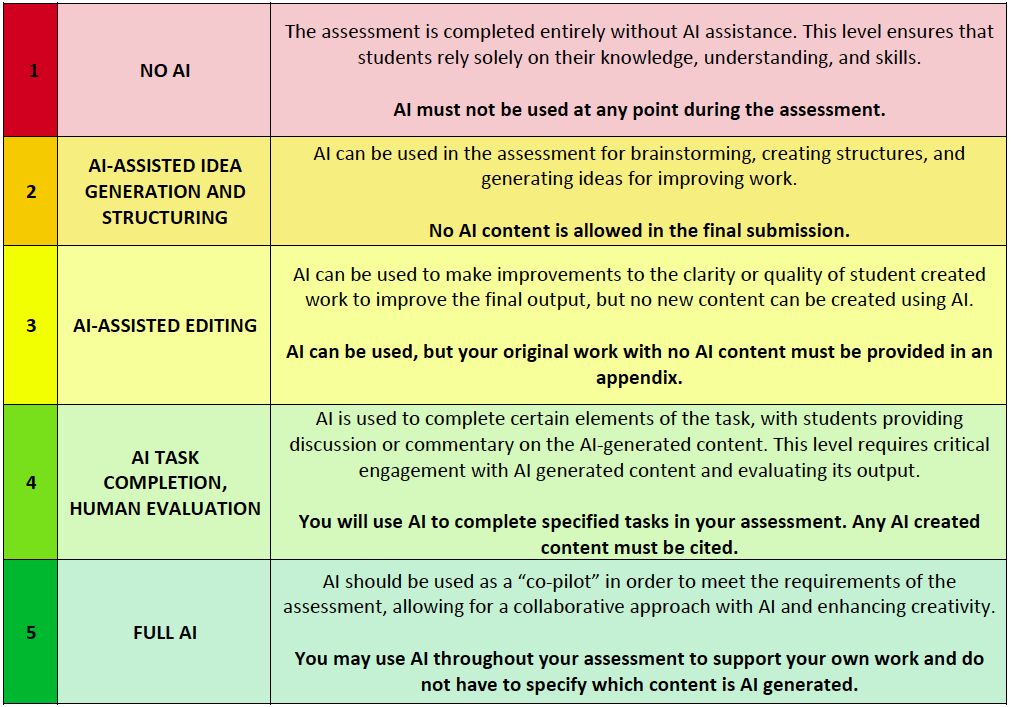
This page offers a quick reference of resources for instructors, including a compilation of the strategies and resources described within the preceding pages of Instructors and TAs section.
It offers ways that instructors and TAs can engage students on the topic and promote academic integrity throughout the term. It also includes links to university resources that support students in developing their academic skills.
Academic Integrity Reminders

Consider ways to integrate academic integrity messaging throughout the term. This messaging can help remind students of expectations when they encounter challenging circumstances during the term that may challenge their commitment to academic integrity.
Using Statements to Remind Students
- Visit Academic Integrity Syllabus Statements for statements that you can use as reminders at various points. Consider posting syllabus statements of your choice to eClass throughout the term, for example, you can use syllabus statements about the types of academic misconduct that may cause confusion for students, such as unauthorized collaboration and plagiarism and how students can avoid engaging in these types of misconduct.
- Prior to tests, exams and quizzes, use an academic integrity statement to remind students about maintaining integrity during the assessment.
Assignment Resources
Several assignment resources help students stay on track with integrity as they complete their course assignments, such as:
- the SPARK Academic Integrity Checklist
- the Integrity in Practice document which helps students overcome challenges with citation
- The Peer Feedback Guide for guidelines on providing appropriate feedback to classmates without compromising academic integrity.
Raising Awareness of Academic Integrity

To help raise awareness of academic integrity among your students, consider connecting students to education on academic integrity such as the various academic integrity online modules and workshops that are available at York. These can be assigned for students to complete outside the classroom.
SPARK Academic Integrity Resources

The SPARK module on Academic Integrity explains York’s expectations for academic integrity and provides strategies to help students meet them. Included within the module are various supports and resources to help undergraduate students gain the skills and the confidence needed to complete their work with integrity.
- The SPARK Faculty Module includes information and tips on how to use the module with your students
- There is also a related academic integrity quiz that you can implement. The SPARK Resources page on quizzes provides options for importing various SPARK quizzes, including the quiz on academic integrity. This quiz includes 10 questions which are based on the content within the module.
Graduate Student Resources
- To help familiarize graduate studentswith academic integrity expectations, graduate students are expected to complete the Faculty of Graduate Studies Open Access Graduate Academic Integrity Resource which explains the importance of academic integrity and provides instruction on how to avoid engaging in different types of academic misconduct.
Academic Integrity Workshops
- The Academic Integrity: Learn to Stop Worrying about It Workshop is an online, live workshop offered several times each academic term. This interactive, scenario-based workshop provides students with information on academic integrity, how to demonstrate it, and helps increase students’ confidence when it comes to using sources and citing. Throughout the workshop, students are connected to resources and supports across the university.
- Upcoming dates can be found on York University Libraries’ Workshops page.
- For more academic integrity workshops, view: Upcoming Events.
- The York University Libraries’ Academic Integrity: Self-Learning Module is a self-paced, online module based on the live workshop. Designed for undergraduate students, it includes scenarios for students to work through along with related quiz questions.
- The Academic Honesty @ York video modules are a series of five short modules that present scenarios of different types of academic misconduct and provide students suggestions for avoiding these behaviours.
Course-Level Learning Outcomes

By integrating academic integrity skills and values into your course-level learning outcomes, you help students recognize its significance, provide them with the tools to practice it effectively, and create a learning environment that upholds its values.
Some examples include:
- “By the end of this course, students will be able to apply discipline-specific citation practices in written work and audio-visual presentations”
- “By the end of this course, students will be able to articulate the ethical standards that underpin academic integrity in this discipline”
- “By the end of this course, students will be able to interpret scholarly discourse from discipline-specific referencing practices”
Learning Outcomes Specific to GenAI Use:
- “By the end of this course, students will be able to critically evaluate the ethical use of generative artificial intelligence (GenAI) tools while ensuring their work adheres to academic integrity principles”
- “By the end of this course, students will be able to critique peer work for adherence to academic integrity standards in their field”
- “By the end of this course, students will be able to identify appropriate uses of GenAI tools for enhancing, rather than replacing, their original contributions”
- “By the end of this course, students will be able to document and justify their use of GenAI tools in accordance with academic integrity guidelines”
GenAI in the Learning Environment
This section includes a compilation of the strategies and resources included on the AI Technology and Academic Integrity for Instructors page. Each aim to help clarify instructor expectations and promote transparency and responsible use of AI-based tools among students.
Citing GenAI: Guidelines for Students

When using an AI-based tool, students need to provide citations whenever they paraphrase the output, use direct quotations from the output, or when they incorporate information they’ve sourced from using the tool.
For more information about citing the use of GenAI, you can connect students to:
- SPARK Creating Bibliographies
- Libraries’ Citing Your Work: Artificial Intelligence (AI) Tools
- Like the technology itself, citation guidelines on AI tools are evolving. You can direct students to the Libraries’ APA, MLA and Chicago (Author/Date and Notes & Bibliography) Style Overviews for specific instructions.

Academic Integrity Syllabus Statements
Academic Integrity Syllabus Statements contains different options to clarify your expectations about the use of GenAI to your students. To select the appropriate statements for your courses, consider if/how you would like students to use GenAI for their assessments.

Additionally, consider incorporating learning outcomes that specifically address the use of GenAI. Examples of learning outcomes that target GenAI use specifically are listed in the Incorporate Academic Integrity Learning Outcomes sections on this page.
Survey Students about GenAI Use
The Questions for Students about GenAI page contains questions that could be used to learn about how students are using AI tools and their thoughts on using these tools.
- Options:
- use these questions in an anonymous survey to better understand students’ perceptions
- use the questions in in-class discussions to stimulate conversation with your students about AI tools
Discussing academic integrity with your students demonstrates your commitment to its importance. You can find additional discussion questions to explore the topic of academic integrity with your students within Academic Integrity in the Learning Environment.

Using Forms to Obtain Further Information about How Students Used AI-Based Tools
| Form | Description |
| 1. Declaration of AI-Based Tool Usage (.docx format) Declaration of AI-Based Tool Usage (PDF format) | This form asks students to identify the tool they used and to communicate the way(s) in which they used it to aid in their learning. |
| 2. Appropriate Use Statement (.docx format) Appropriate Use Statement (PDF format) | This form asks students to review the steps involved in using AI tools appropriately to ensure that the work they submit is aligned with these expectations. |
| 3. AI-Based Tools: Evaluation and Reflection (.docx format) AI-Based Tools: Evaluation and Reflection (PDF format) | This form guides students in fact-checking and critically evaluating AI-generated output while encouraging reflection on what they have learned through their interactions with these tools. |
For more information, refer to Communicating Expectations on GenAI Use.
Assessment Statements

Artificial Intelligence Assessment Scale (AIAS)
Consider using statements from the Artificial Intelligence Scale (AIAS) on your assessments to clearly and succinctly communicate your expectations on the use of these tools for each assessment.
The AIAS framework includes five levels, ranging from “no AI” to “full AI,” each with brief examples, that can be applied across various disciplines. For an enlarged view: Artificial Intelligence Assessment Scale (AIAS).
Academic Supports to Prevent Misconduct

Consider promoting different academic supports at York that can help students enhance their study habits, improve their understanding of course material, and develop a well-rounded academic skill set. By engaging with these supports, students can build a stronger foundation for success in their studies.
York University Libraries
York University Libraries are important partners in academic integrity. The libraries provide essential resources and guidance that help students and researchers conduct their work responsibly. Offering access to credible sources, citation tools, and educational workshops, the libraries at York help students properly attribute sources, critically evaluate information, and adhere to the principles of academic integrity throughout their studies.
SPARK Modules
In addition to the SPARK Academic Integrity module, consider implementing other SPARK modules offered by the libraries that relate to academic integrity. These include:

Associated quizzes
The SPARK Resources page on quizzes provides instructors with additional resources, such as quizzes that accompany each module. The SPARK Resources page provides options for importing SPARK quizzes and making them available to students.
Citation Resources
Connect your students to resources for proper citation from York University Libraries, including:
- the Citing Your Work guide, which includes information on citing Artificial Intelligence tools
- using Citation Tools
- Contact a librarian to discuss more ways to promote academic integrity in the classroom

Learning Skills Services
Learning Skills Services provides a range of supports designed to help students enhance their academic abilities and achieve their academic goals. These services include workshops, drop-in sessions, online resources, and more. Some of their offerings include:
Time Management

Learning Skills Services offers extensive Time Management guidance to students. This guidance includes:
- support with setting goals and building a balanced schedule
- time management tools and resources
- workshops on time management and avoiding procrastination
Academic Strategies
Learning Skills Services also offer strategies and resources to help students improve:
- reading and note-taking strategies
- preparing for tests and exams
- identifying personal study strategies
- skills to help students succeed in class, such as critical thinking, group work, and managing academic stress, among others

The Writing Centre (LA&PS)
The Writing Centre assists students with reading, writing and thinking skills through different types of programming. Some examples include:

- one-on-one appointments
- drop-in sessions
- a multilingual studio that helps multilingual students with skill development
- the PhD Café for graduate students
ESL Open Learning Centre
The English as a Second Language Open Learning Centre (ESL OLC) helps students improve English language skills by offering support for reading, writing, speaking and writing essays in English. The experts within the ESL OLC support students in understanding their assignments, expanding their vocabulary, and learning English grammar.
Students can use the ESL OLC booking system to book drop-on sessions, individual sessions, small group sessions, themed classes or to participate in the ESL Cafe.


Use this instructor checklist as a helpful guide to ensure that academic integrity is a core part of your courses. This resource ties together the academic integrity best practices provided on this page that you can implement to promote a learning environment that upholds academic integrity.
Academic Integrity Checklist for Instructors(version PDF)


